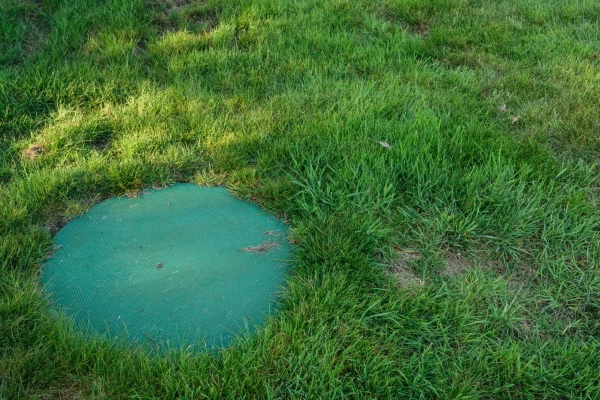Maintaining a septic system is essential to ensure its proper functioning and to prevent costly repairs or environmental hazards. Here are the steps you can take to maintain your septic system:
-
Regular Pumping: Have your septic tank pumped by a professional every 3 to 5 years, or as recommended by local regulations. Pumping removes accumulated solids and prevents them from entering the drain field, which could lead to clogs and system failure.
-
Water Usage Management: Excessive water usage can overload the septic system. Fix leaks promptly, install water-efficient fixtures, and spread out water-intensive activities (like laundry) throughout the week to avoid overwhelming the system.
-
Proper Waste Disposal: Only flush toilet paper and human waste down the toilet. Avoid flushing items like baby wipes, feminine hygiene products, paper towels, grease, and chemicals, as they can clog the system.
-
Limit Harsh Chemicals: Avoid using excessive amounts of household cleaners and chemicals, as they can disrupt the natural bacteria balance in the septic tank. Choose septic-safe cleaning products when possible. We recommend Bio-Clean twice a year.
-
Avoid Garbage Disposals: Garbage disposals can introduce solids and grease into the septic system. Minimize their use or avoid using them altogether to prevent overloading the system.
-
Protect the Drain Field: Avoid driving vehicles or heavy machinery over the drain field, as compacting the soil can reduce its ability to absorb water and lead to system failure.
-
Planting: Do not plant trees, shrubs, or other deep-rooted plants near the septic system components. Roots can infiltrate the pipes and cause blockages or damage.
-
Maintain Grease Traps: If your septic system includes a grease trap, ensure it's regularly cleaned and maintained to prevent grease buildup in the system.
-
Inspection: Schedule regular inspections of your septic system by a professional. They can identify any potential issues early on and recommend necessary maintenance.
-
Monitor Drains and Toilets: If you notice slow drains, gurgling noises, foul odors, or backups, it could indicate a problem with your septic system. Address these issues promptly to prevent further damage.
-
Keep Records: Maintain records of septic system inspections, pumping schedules, repairs, and maintenance. This information can be valuable for future maintenance and potential property transactions.
-
Follow Local Regulations: Be aware of and adhere to local regulations and guidelines for septic system maintenance. Requirements can vary by location, so staying informed is important.
By following these steps, you can help ensure the longevity and proper functioning of your septic system, which is crucial for protecting your property, the environment, and your community's health. Remember, we are here to help you with your septic system questions!
